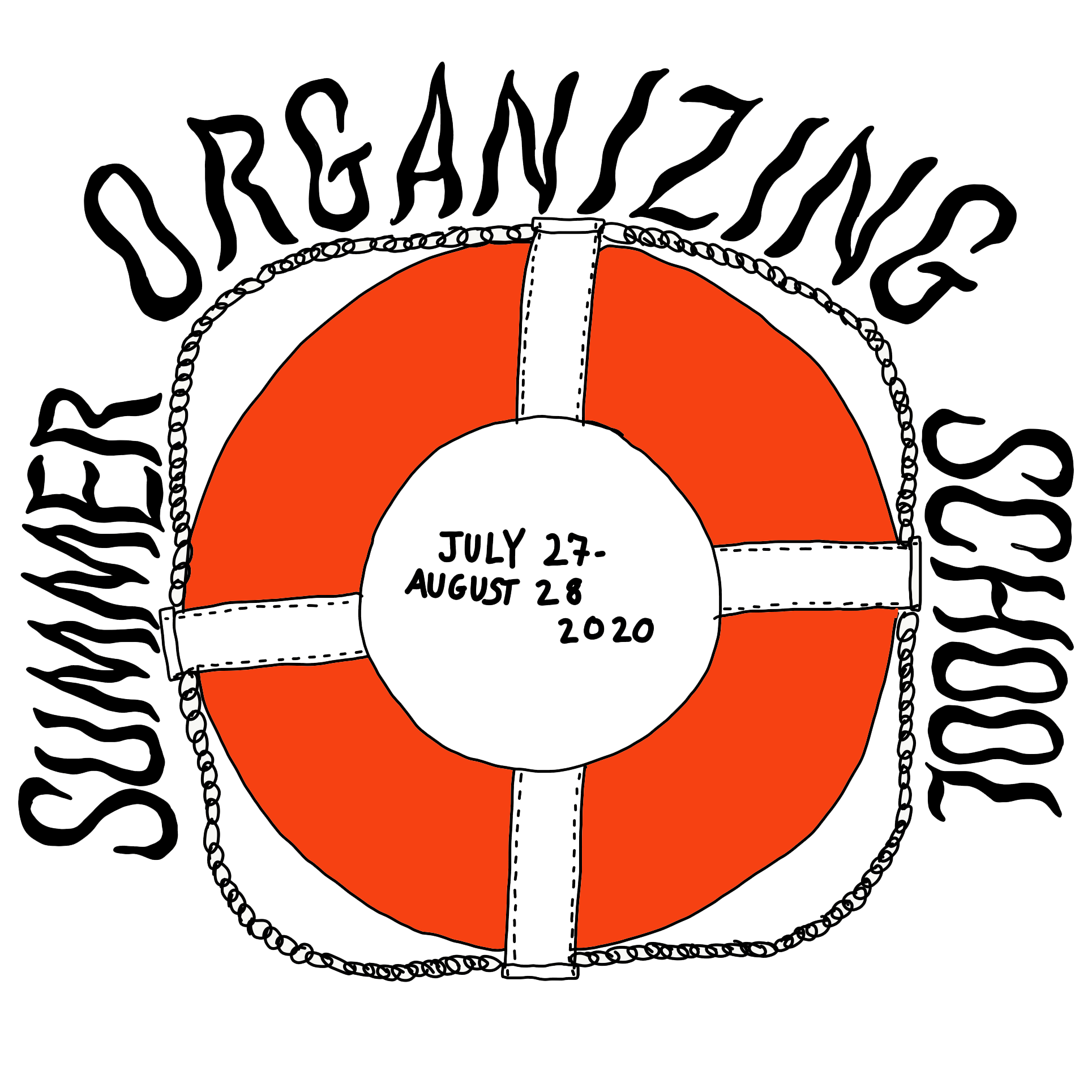Summer Organizing School (SOS)

Types of Offerings
Classes/Trainings - Will meet one time
Courses - Will meet repeatedly (between 2 and 4 sessions)
Reading/Discussion Groups - Facilitated discussions about readings and topics, number of sessions will vary
Classes
"Intimacies of Violence" website * Videos of materials covered in previous practice sessions
The word intimacy carries good or positive connotations. You know the touchy feely stuff. And that matters. How does the dichotomy between good and bad intimacies obscure how good intentions may bring harm into being? how do plural violences stay close, get proximate, and even grow on, in and through societies. The goal is to try to answer, or at the very least, expand on this line of questioning. Thus the title: the violence of intimacies or intimacies of violence.
Courses
“Don’t Get Distracted: History of Movements Co-opted” - Emmaia G. (PhD Candidate, American Studies), Tania M. (Queens Neighborhoods United)
In 1980, critical race scholar Derrick Bell wrote (more or less) that our movements only win when letting us win helps the powerful hang on to power. And yes -- we’ve seen demands to end police violence watered down to minor police reforms, and then won. We’ve seen gay marriage take the place of queer liberation, and then won. We’ve seen Black Power beaten back by police violence just as it was redrawing the lines of power. That history teaches us how power works, and how resistance might take shape.
In these sessions we’ll study the cooptation of movements, consider the possibilities for resistance, and look at current organizing embodying resistance. Format: Reading and facilitated discussion in 2-3 stand-alone sessions. Participants will help choose which movements we collectively study before the sessions start, so early sign-up is suggested. All materials will be provided online and for free.
“Universities and Urban Struggle” - Gabriel Y. (PhD Candidate, History & MEIS), Emma M. (PhD Candidate, History), and Alyssa Z.
Our three sessions approach the relationship of the university and struggles over urban space on varying scales. Our first session will provide groundwork by reviewing how a) American cities became new sites of profit-making and dispossession in the neoliberal era, and b) accounts of the place univeriities in that process. Drawing from our own experiences, we will then contemplate NYU’s role in gentrifying the Village and parts of Brooklyn, where resident-activists and organizations from Jane Jacobs to the Housing Justice for All coalition have tried to claim their “right to the city.” In our third session, we hear from housing justice activists in order to learn how folks have combatted real estate/NYU power in Manhattan. All sessions will consist of discussion based on readings, and the latter two will feature guest speakers. We encourage you to attend all three sessions, if you are able, but please attend any and all!
"The University’s Dirty Money" - Financial Research Group, GSOC-UAW Local 2110
Session One: Did NYU Buy My Professor a House? How to Find Out (and Why It Matters) - Facilitator: Sam P. (PhD Student) - Tuesday July 28, 2-3 pm ET
Session Two: Board of Trustees Research Working Party - Facilitators: Mariko W. (PhD Student) and Claire S. (PhD Student) - Thursday July 30, 2-3 pm ET
Session Three: University Finances 101: Important Questions to Ask and How to Answer Them - Facilitators: Bhumika C. (PhD Student), Claire S. (PhD Student) - Monday Aug 3, 2-3 pm ET)
"A Face Mask Wont Fix it: Commodification of $elf Care" - Jenny L. (PhD Candidate)
This two-part offering will examine the commodification and depoliticization of self care. Informed by the writings of radical feminists of color as well as visionary projects like the Nap Ministry and the Icarus Project, we will think together about how we can shift from an individualized, quick-fix model of self-care to one rooted in community. In line with SOS’ theme of abolition, we will also consider the relationship between social work and the carceral state. Together, we will think through how to individually and collectively engage in care (rather than $elf care) that is meaningful and accountable.
A History of Police Violence From Slave Patrols to Shake Shack - Emmaia G. (PhD candidate, American Studies)
This class mixes reading and films on your own, and background lecture and discussion together. In each session we’ll look at a different aspect of how violent policing has developed as a naturalized part of US life. Since this is a very big topic, participants will set priorities for what material is covered. Format: Reading and films on your own, background lecture and discussion together. Each session will build on earlier sessions, but you can join at any point.
Session topics (depending on class priorities):
Optional writing assignment: Participants can write an essay or opinion piece (based on classwork) for feedback and writing support.
All readings and films will be available online and free.
Violence against black african women runs the world website * Videos of materials covered in previous practice sessions
How do carcerality, policing, borders, the medical industrial complex, the nonprofit industrial complex, the military industrial complex, and empire converge on, instrumentalize, and harm black african women specifically and around the world?